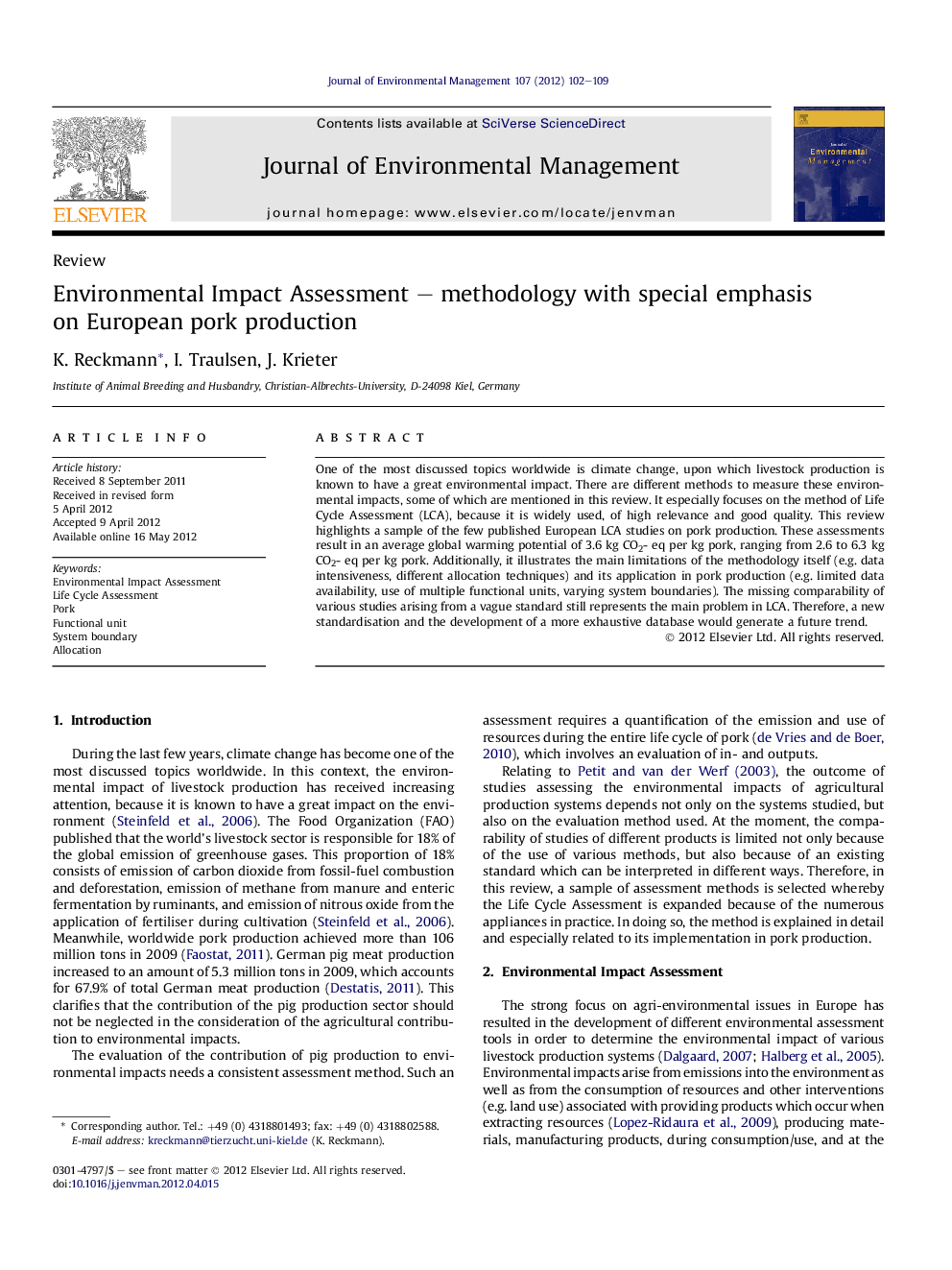| Article ID | Journal | Published Year | Pages | File Type |
|---|---|---|---|---|
| 1056668 | Journal of Environmental Management | 2012 | 8 Pages |
One of the most discussed topics worldwide is climate change, upon which livestock production is known to have a great environmental impact. There are different methods to measure these environmental impacts, some of which are mentioned in this review. It especially focuses on the method of Life Cycle Assessment (LCA), because it is widely used, of high relevance and good quality. This review highlights a sample of the few published European LCA studies on pork production. These assessments result in an average global warming potential of 3.6 kg CO2- eq per kg pork, ranging from 2.6 to 6.3 kg CO2- eq per kg pork. Additionally, it illustrates the main limitations of the methodology itself (e.g. data intensiveness, different allocation techniques) and its application in pork production (e.g. limited data availability, use of multiple functional units, varying system boundaries). The missing comparability of various studies arising from a vague standard still represents the main problem in LCA. Therefore, a new standardisation and the development of a more exhaustive database would generate a future trend.
► LCA on pork production results in an average GWP of 3.6 kg CO2-eq per kg pork. ► Feed production contributes with 56–66% to the overall emissions. ► The feeding of soy accounts for one-fifth of total emissions. ► The main impact category of pork production is eutrophication. ► A revised standard is necessary for a better comparison across LCA studies.
